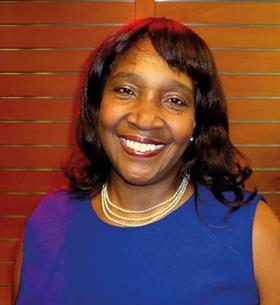On 21 January, the Solicitors Regulation Authority published the results of the first ever Solicitors Qualifying Exam (SQE). The pass rate was 53%.

However, the results showed a disparity between white, and black, Asian and minority ethnic candidates: 66% of white candidates passed compared to 43% of Asian candidates and 39% of black candidates.
The Legal Practice Course (LPC), meanwhile, showed pass rates between 23% and 100%, depending on the provider.
This disparity in outcome is a hidden feature of the LPC and higher education. I would hope this exposure leads to steps being taken to find out the cause and address it. Such a move would also show that the SRA takes race equality seriously, moving towards a profession that reflects the diversity of society.
Attainment gap
What is called the ‘attainment gap’, or ‘differential achievement’, is a longstanding feature of the English and Welsh education system (Scotland has far less of a problem). Black Caribbean pupils start off with average attainment but fall behind through primary and secondary school. By then, this gap is entrenched – and if there is no intervention, this continues into higher education.
Traditionally, this apparent underachievement has focused on some deficiency in the student rather than institutional culture, curriculum,and the method and practice of teaching.
Research shows that inequalities between children from different socioeconomic groups, in both cognitive skills and socio-emotional wellbeing, are already visible from the age of three – and they persist and widen over time.
In the academic sector, Advance HE, a charity that works with institutions and higher education across the world to improve matters, has published data and findings related to the size of ethnicity awarding gaps.
The report examines the difference in proportions of white and black, Asian and minority ethnic students awarded a first or 2:1 degree since 2005. Issues with housing, nutrition, transport and clothing were identified as factors which affected attainment in schools.
They affect access to education and impact a pupil’s capacity to learn. The cost of materials, uniforms, school trips and additional extras further entrench inequalities, as does access to the internet and technology.
Disaggregation of data among non-white groups also highlights the fact that outcomes vary by ethnic group, although it can be narrower for those studying science, technology, engineering and mathematics (STEM) subjects. An explanation may be the difference in methods of assessment that are more objective.
It is most stark for law and business degrees, where assessments are more subjective.
A positive experience of the educational institution also makes a difference, as well as being encouraged to fulfil potential and having access to the best teachers.
Some ethnic groups are well ahead of white peers. However they do not have the same issue of disproportionate school suspensions and permanent exclusion faced by black Caribbean pupils. The reasons behind this are for another day and another article.
Minority ethnic students comprise nearly 20% of the undergraduate student population, a figure also reflected in those studying law. Here, completion rates are disproportionately low and the gap is widest.
One factor identified is unconscious bias in marking, something the SQE will be attuned to address. But there are also other factors, and training institutions ought to collect and analyse their own data so that they can make interventions.
Something as simple as monitoring attendance and checking the reasons for poor attendance can make a difference.
Many years ago, as the only non-white person on my undergraduate law course, feeling excluded and mostly ignored, I stopped attending tutorials and failed my first year.
On returning a year later, and having a personal tutor who took the time to learn my name and actually speak to me, I was far more engaged and progressed. Call it snowflakery, but it is what students get in private schools and similar institutions.
Teaching should be based on understanding students’ needs and personalising approaches. Tutors are best placed to see when pupils are struggling and intervene, particularly those without the background or confidence to say so.
It should not be a surprise that those studying part-time, with more distractions in their lives, do less well than those studying full-time. Ethnic minorities are more likely to be working and studying during undergraduate years.
As SQE2 may often follow a period of qualifying training, this is also applicable to the workplace environment.
Candidates are making a considerable financial investment and we should be helping those with talent and potential to achieve an outcome that is not predicated on their ethnicity or background.
Dr Cordella Bart-Stewart OBE, co-founder and director of the Black Solicitors Network, is former governor of Staffordshire University and a Law Society Council member
































No comments yet